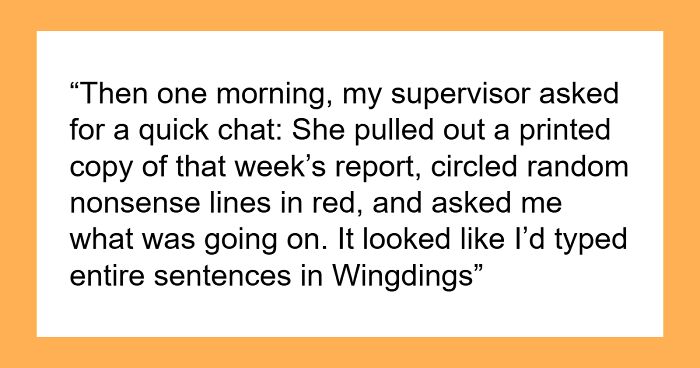
“Beyond Petty”: Woman’s Desperate Plot To Smear Coworker’s Reputation Ends In HR Nightmare
Interview With ExpertIf you want to make a lasting impression in your career, there are plenty of ways to do it. You can take initiative by suggesting fresh ideas, for one. Earn the respect of your boss and colleagues. Maybe try improving some KPIs.
Or, you could take a more unconventional route, like this Redditor’s coworker, who attempted to sabotage him out of pure insecurity by tampering with his client reports. It’ll surely get you noticed—just not in a way that moves you up the ladder.
The man assumed he was making mistakes in his work
Image credits: Mikhail Nilov/Pexels (not the actual photo)
Until a surprising discovery exposed the real culprit
Image credits: SHVETS production/Pexels (not the actual photo)
Image credits: Infinite-Chocolate46
85% of people have an annoying coworker
Image credits: RDNE Stock project/Pexels (not the actual photo)
Work is where we spend most of our waking hours, so the people around us play a big role in shaping our mood and mental well-being. With a friendly team, the days can feel productive and even enjoyable. But when the office is full of “Stephanies,” things can quickly turn unbearable.
Sadly, very few of us have the privilege of working in an environment entirely free of friction, as a survey by Kickresume revealed that a staggering 85% of employees have dealt with an annoying coworker, 58% of whom report that these behaviors significantly impact their productivity.
The data points to these as the most frequently mentioned types of irritating coworkers:
- Credit Stealer (33%)
- Micromanager (32%)
- Chronic Complainer (30%)
- Personal Space Invader (30%)
- Lunch Thief (27%)
Despite these frustrations, many people prefer to handle the situation passively. The survey found that a third of employees choose to distance themselves from annoying colleagues rather than confronting them. Meanwhile, 41% admit they wish they could tell their coworkers exactly how they feel, and others even fantasize about more drastic solutions, like getting them fired.
Peter Duris, CEO at Kickresume, explained to Forbes that this avoidance of confrontation often reflects a lack of effective communication training and conflict resolution resources in the workplace.
“Fixing these issues could make employees happier and create a more supportive work environment,” he said. “Our findings are quite concerning, so we want to highlight the importance of creating a harmonious workplace where these behaviors are addressed. This could involve diplomatically making staff aware of how their actions affect the team. Doing this will help build a more united, friendly and efficient workplace.”
When it comes to conflict as serious as the one OP experienced, however, direct confrontation isn’t always enough, as it involved a direct threat to his position in the company. Career coach Renata Junkova explained to Bored Panda that situations like these can be particularly tricky, not only because of the harm caused but also due to the breakdown of trust—an essential part of any professional relationship.
“When trust is breached in the workplace, it’s unrealistic to expect things to go back to normal immediately,” Junkova noted. “Rebuilding that trust takes time, and it’s important to manage your expectations during the process.”
Junkova offered the following advice to help the author of the post move forward:
1. Accept the situation, but stay vigilant:
“It’s tough, but sometimes we have to work with people we don’t fully trust. The goal here isn’t to become friends with the coworker but to maintain professionalism and protect your own work. Stay open-minded but also keep your guard up until they prove they can be trusted again.”
2. Focus on what you can control:
“You can’t control the company’s decision to keep this person, but you can control how you respond. Focus on maintaining high-quality work and showing consistency in your performance. Your professionalism will speak for itself, and over time, any lingering doubts others may have will fade.”
3. Be transparent with your manager:
“Without turning it into a blame game, make sure your manager is aware of any key tasks where you and this coworker need to collaborate. This keeps things above board and ensures there’s an open channel for addressing potential issues early on.”
Readers couldn’t decide what was more outrageous—the coworker’s actions or that she didn’t lose her job
Poll Question
Thanks! Check out the results:
Not only is "Stephanie" a bad person obviously but also very stupid, if she didn't know that you could see the version history for these documents.
Haha 8% "no actions necessary" is wild. Must be the ones terrorizing everyone.
Take a leaf out of Joe Lycett’s book; Sadly Stephanie, hopefully doth butter no parsnips!
Not only is "Stephanie" a bad person obviously but also very stupid, if she didn't know that you could see the version history for these documents.
Haha 8% "no actions necessary" is wild. Must be the ones terrorizing everyone.
Take a leaf out of Joe Lycett’s book; Sadly Stephanie, hopefully doth butter no parsnips!

 Dark Mode
Dark Mode 

 No fees, cancel anytime
No fees, cancel anytime 



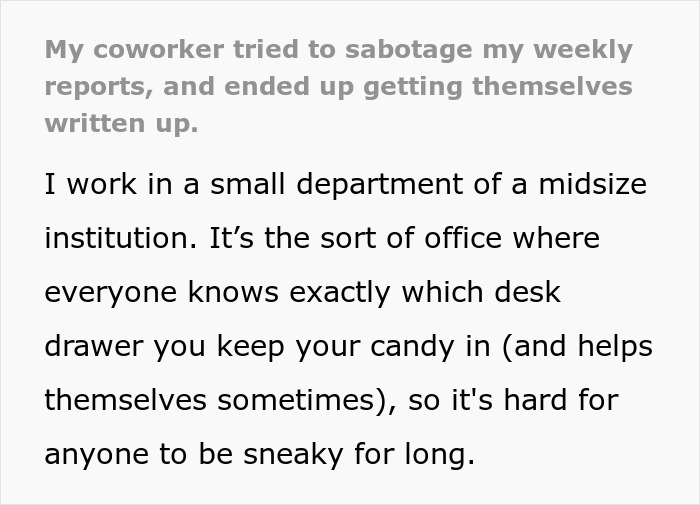
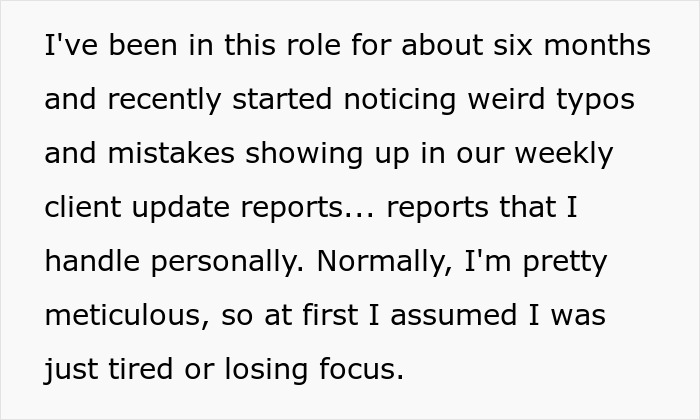
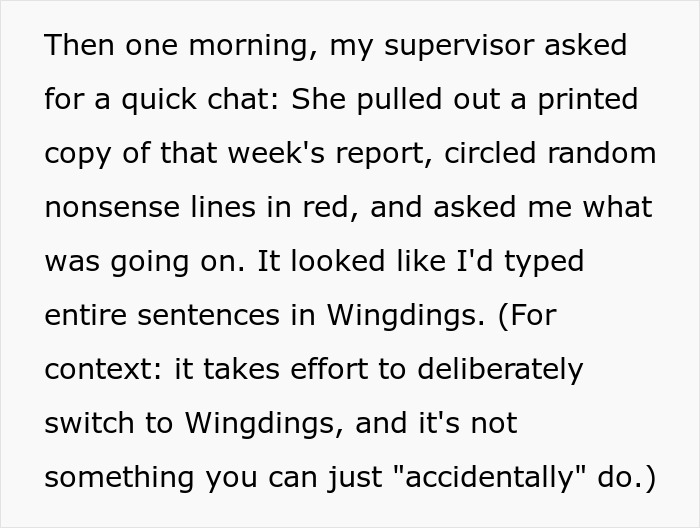
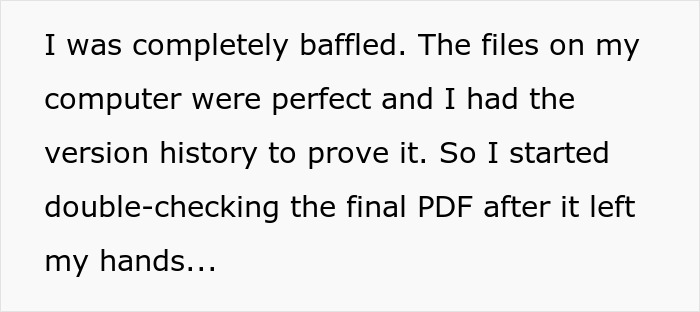
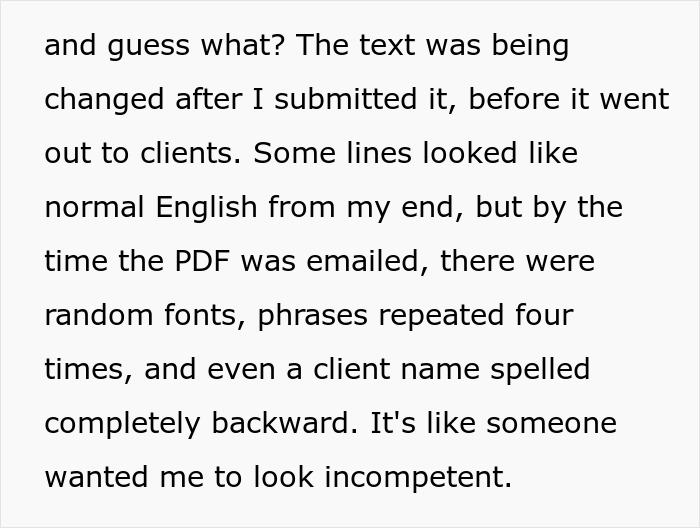


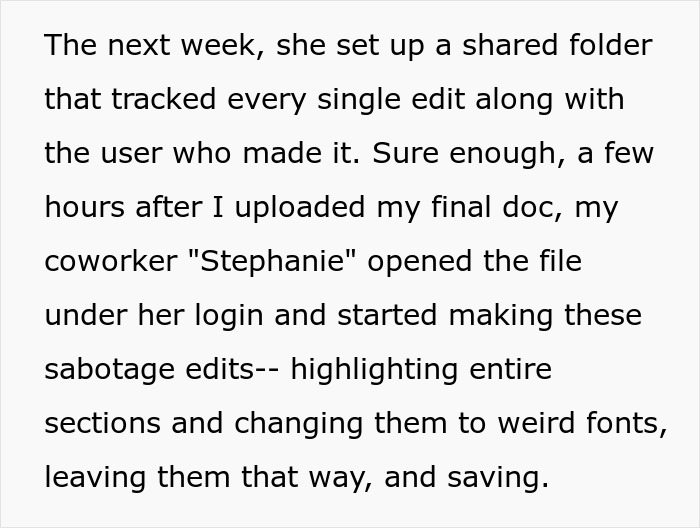

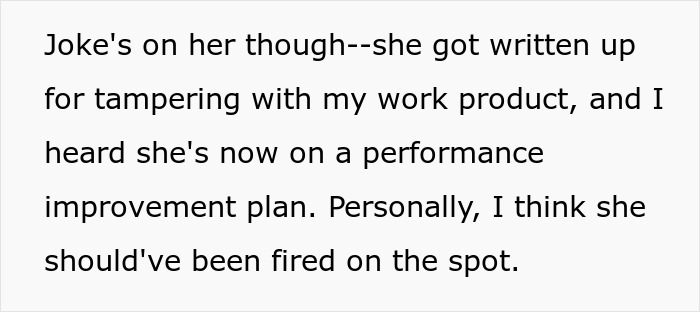
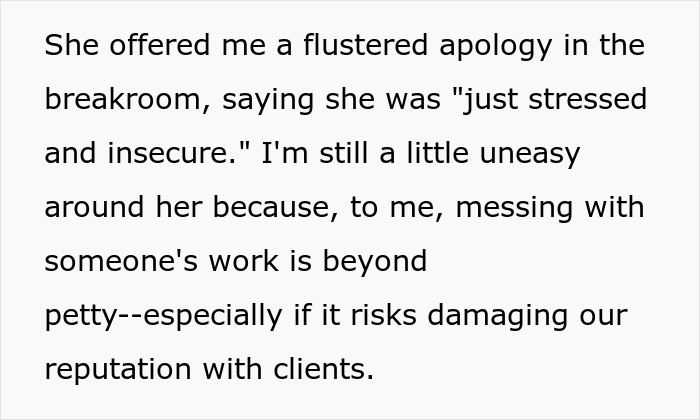
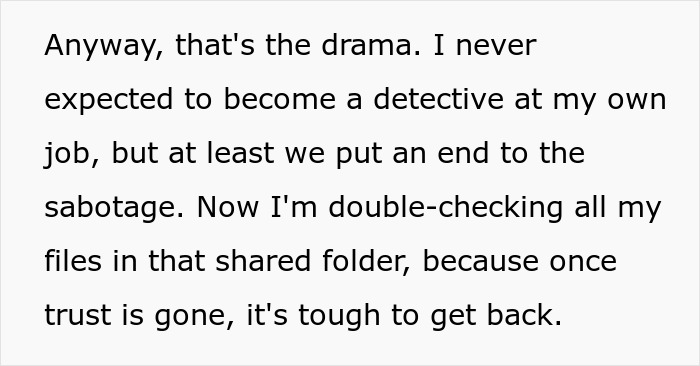

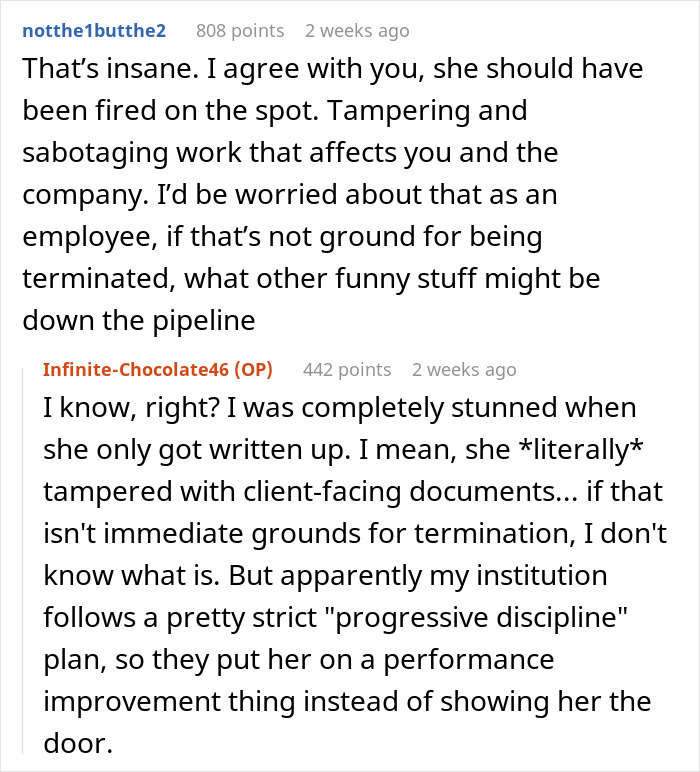



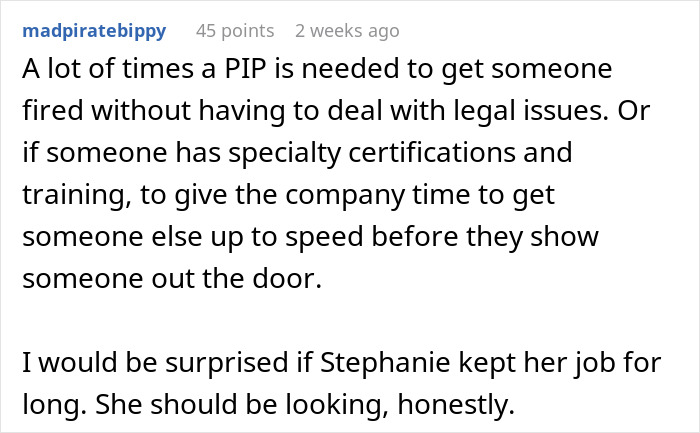


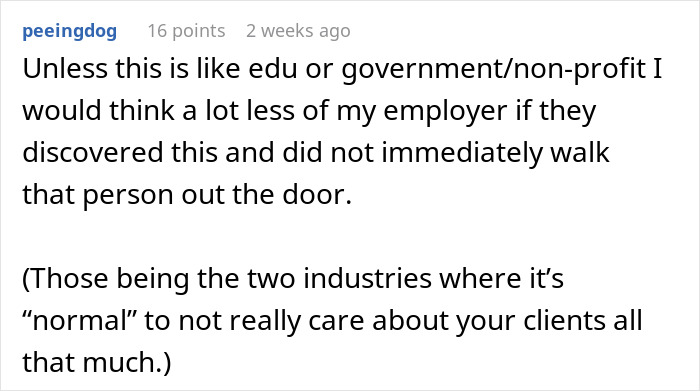

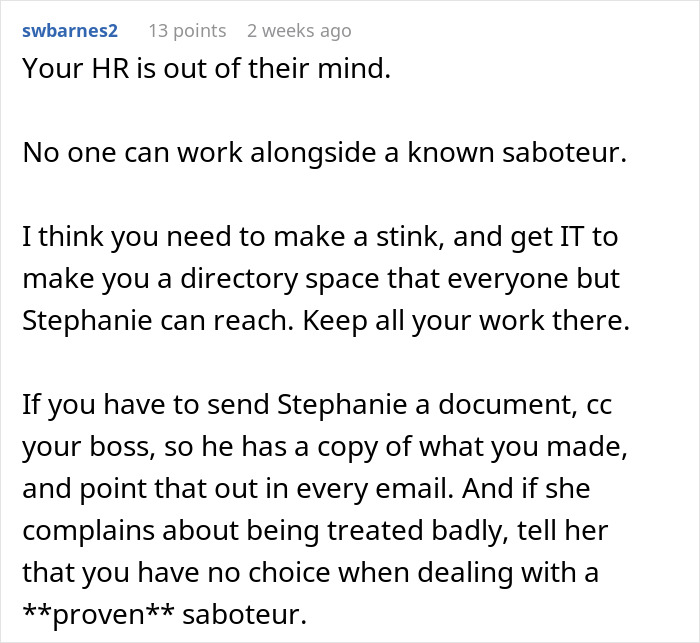




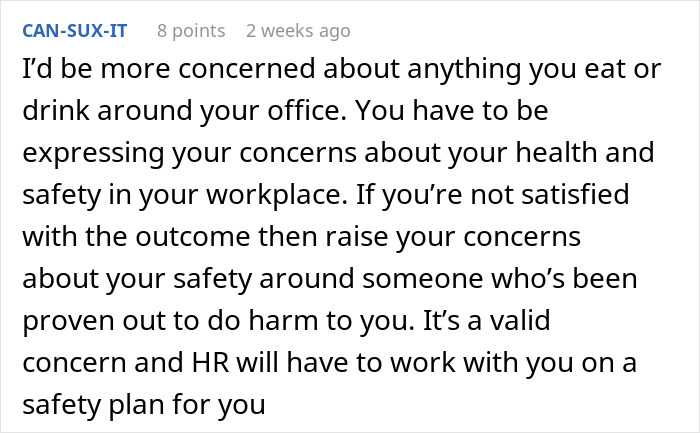









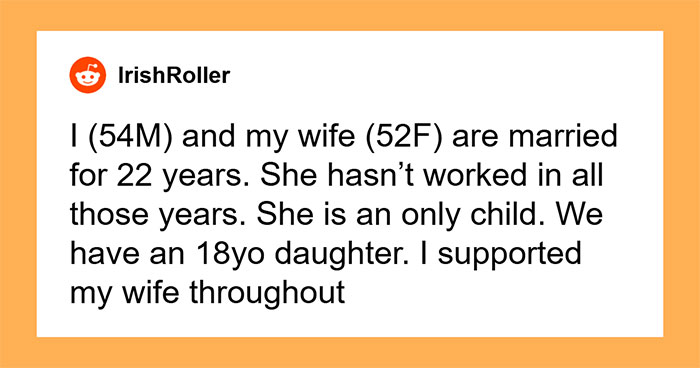










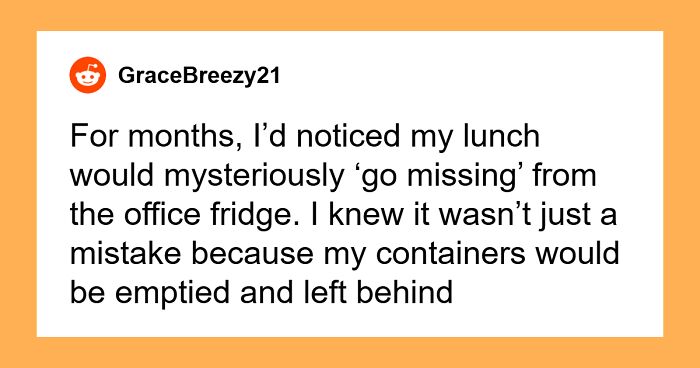


32
9